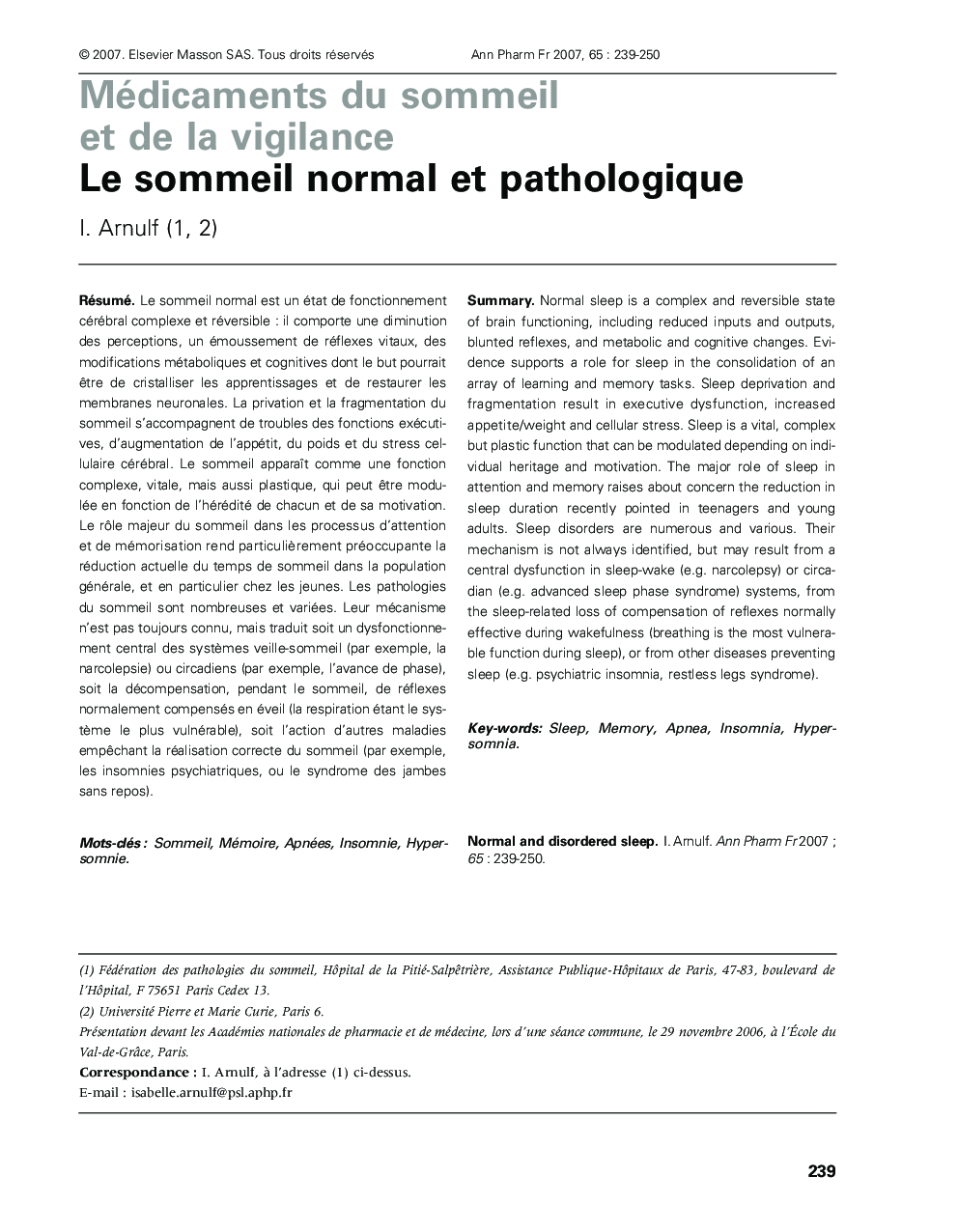| Article ID | Journal | Published Year | Pages | File Type |
|---|---|---|---|---|
| 2478527 | Annales Pharmaceutiques Françaises | 2007 | 12 Pages |
Abstract
Normal sleep is a complex and reversible state of brain functioning, including reduced inputs and outputs, blunted reflexes, and metabolic and cognitive changes. Evidence supports a role for sleep in the consolidation of an array of learning and memory tasks. Sleep deprivation and fragmentation result in executive dysfunction, increased appetite/weight and cellular stress. Sleep is a vital, complex but plastic function that can be modulated depending on individual heritage and motivation. The major role of sleep in attention and memory raises about concern the reduction in sleep duration recently pointed in teenagers and young adults. Sleep disorders are numerous and various. Their mechanism is not always identified, but may result from a central dysfunction in sleep-wake (e.g. narcolepsy) or circadian (e.g. advanced sleep phase syndrome) systems, from the sleep-related loss of compensation of reflexes normally effective during wakefulness (breathing is the most vulnerable function during sleep), or from other diseases preventing sleep (e.g. psychiatric insomnia, restless legs syndrome).
Related Topics
Health Sciences
Pharmacology, Toxicology and Pharmaceutical Science
Drug Discovery
Authors
I. Arnulf,
